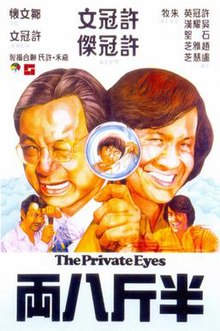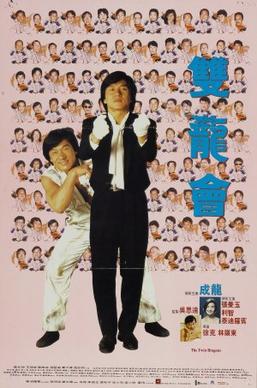
Twin Dragons is a 1992 Hong Kong action comedy film directed by Ringo Lam and Tsui Hark, and starring Jackie Chan in a double role as identical twin brothers separated at birth.

Samuel Hui Koon-kit, usually known as Sam Hui, is a Hong Kong musician, singer, songwriter and actor. He is credited with popularising Cantopop both via the infusion of Western-style music and his usage of vernacular Cantonese rather than written vernacular Chinese in biting lyrics that addressed contemporary problems and concerns. Hui is considered by some to be the first major superstar of Cantopop, known as the God of Song. As an actor, he is well-known for portraying the main character "King Kong" in five installments of Aces Go Places film series.

Half a Loaf of Kung Fu is a 1978 Hong Kong action comedy martial arts film directed by Chen Chi-hwa and written by Jackie Chan, who also starred in the lead role. The film co-stars Dean Shek and James Tien. The film was released in Hong Kong on 1 July 1978. Chan plays a bumbling kung fu student who becomes involved in a series of adventures in one of his first forays into the kung fu acrobatic slapstick comedy style that would become his signature.
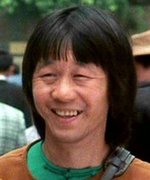
Ricky Hui Koon-ying was a Hong Kong actor and singer. He along with his brothers, Michael and Sam, made several comedy blockbusters in the 1970s and 1980s.

Drunken Master II is a 1994 Hong Kong action-comedy kung fu film directed by Lau Kar-leung and starring Jackie Chan as Chinese martial arts master and a Cantonese folk hero, Wong Fei-hung. It was Chan's first traditional style martial arts film since Fearless Hyena Part II (1983). The film was released in North America as The Legend of Drunken Master in 2000.

The Shaolin Temple (少林寺) is a 1982 Chinese–Hong Kong martial arts film directed by Chang Hsin Yen and starring Jet Li in his debut role along with Ding Lan and Yu Hai in supporting roles. The film is based on the Shaolin Monastery in China and depicts Shaolin Kung Fu. The film was among the first major co-productions between Hong Kong and mainland China, and the first to be filmed in mainland China with a mostly mainland cast. The film's plot has an episodic storytelling structure while combining action, comedy and romance elements.

The Fearless Hyena is a 1979 Hong Kong action comedy kung fu film written, directed by and starring Jackie Chan. This film was Chan's directorial debut. The film was a box office success.

Dragon Lord is a 1982 Hong Kong martial arts comedy film starring and directed by Jackie Chan, who also wrote the screenplay with Edward Tang and Barry Wong. It was originally supposed to be a sequel to The Young Master and even had the name Young Master in Love until it was changed to Dragon Lord. The film was experimented by Chan with various elaborate stunt action sequences in a period setting, serving as a transition between Chan's earlier kung fu comedy period films and his later stunt-oriented modern action films.

City Hunter is a 1993 Hong Kong action comedy film written and directed by Wong Jing, and starring Jackie Chan, Joey Wong, Kumiko Goto, Chingmy Yau, Gary Daniels, Leon Lai and Richard Norton. It is an adaptation of the Japanese manga of the same name by Tsukasa Hojo, first serialized in Weekly Shōnen Jump between 1985 and 1991.
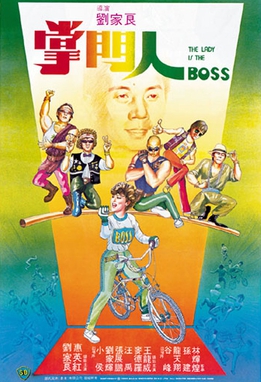
Lady Is The Boss is a 1983 Shaw Brothers kung fu-comedy film directed by Lau Kar-leung and starring Kara Hui.
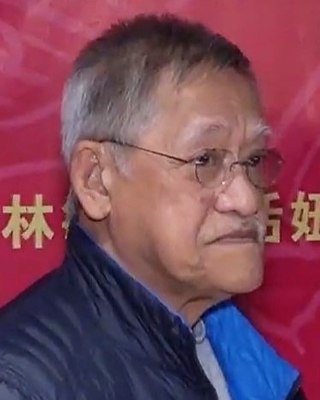
Richard Ng Yiu-hon, also known as Richard Woo, was a Hong Kong actor known for playing comedic roles, particularly in Hong Kong films of the 1980s and 1990s.
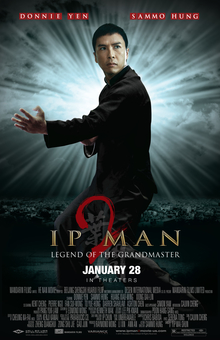
Ip Man 2 is a 2010 Hong Kong biographical martial arts film loosely based on the life of Ip Man, a grandmaster of the martial art Wing Chun. A sequel to the 2008 film Ip Man, Ip Man 2 was directed by Wilson Yip and stars Donnie Yen, who reprises the leading role. Continuing after the events of the earlier film, the sequel centres on Ip's early life in British Hong Kong. He attempts to propagate his discipline of Wing Chun, but faces rivalry from other practitioners, including the local master of Hung Ga martial arts, Hung Chun-nam, and later the British boxing champion Taylor "The Twister" Miller.
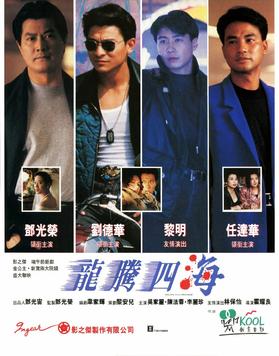
Gun n' Rose is a 1992 Hong Kong action film directed by Clarence Fok and starring Alan Tang, Andy Lau, Leon Lai and Simon Yam.

Gunmen is a 1988 Hong Kong action crime drama film produced by Tsui Hark, directed by Kirk Wong and starring Tony Leung, Adam Cheng and Waise Lee. The film was released in Hong Kong theatrically before Hong Kong motion picture rating system took effort; afterwards, the film was rated Category III for the home video release.

Black Ransom is a 2010 Hong Kong action thriller film directed by Wong Jing and Venus Keung and starring Simon Yam, Michael Miu and Fala Chen.

Hong Kong Godfather is a 1985 Hong Kong action film written and directed by Wang Lung-wei, who also served as action director and appears in a supporting role, and starring Bryan Leung.

Afraid of Nothing, the Jobless King is a 1999 Hong Kong comedy film written and directed by Joe Ma and starring Gallen Lo and Gigi Leung.
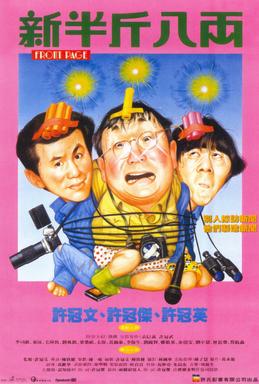
Front Page is a 1990 Hong Kong comedy film directed by Philip Chan and starring Michael Hui, Samuel Hui and Ricky Hui. The film is a remake of the Hui Brothers' 1976 film, The Private Eyes.

Fantasia is a 2004 Hong Kong comedy film produced, written and directed by Wai Ka-fai and starring Cecilia Cheung, Sean Lau, Louis Koo, Jordan Chan, Francis Ng and Christy Chung. The film is a homage to classic Hong Kong comedy films which starred the Hui Brothers, Michael Hui, Samuel Hui and Ricky Hui, particularly the 1976 film, The Private Eyes.

Gangs '92 is a 1992 Hong Kong action film directed by Dick Cho and starring Aaron Kwok as a rich heir who befriends a group of junior delinquents and helps them turn their lives around go straight. The film was released on 7 March 1992 by Newport Entertainment, however, Golden Sun Films Distribution currently owns the film's worldwide distribution rights.
